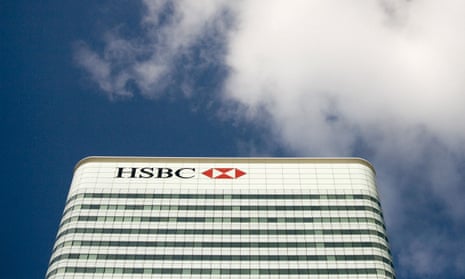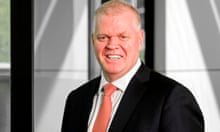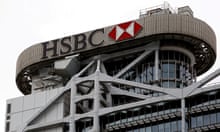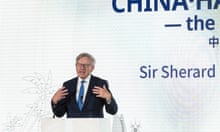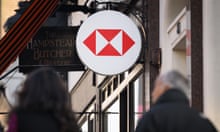HSBC boosted its banker bonus pool by nearly a third, reaching its highest level since 2014, after a global recovery from the Covid crisis helped profits more than double last year.
The London-headquartered bank increased its staff bonus pool to $3.5bn (£2.6bn) in a move it said was justified due to its strong financial performance and the need to compete for workers in an “extraordinarily competitive labour market”. That included tech and IT staff as well as employees across Asia who HSBC said were in high demand.
“It is critical for our long-term performance that we continue to attract and retain the talent necessary to deliver our strategic priorities,” HSBC said in its annual report on Tuesday.
The increase resulted in the highest group bonus pool in seven years, having last totalled $3.7m in 2014.
The boost to bonuses came as the bank said it had paid 451 of its bankers €1m (£832,000) or more last year, marking a 40% increase on the number of staff with such payouts.
That list included 15 bankers earning more than €5m, including one unnamed banker who was handed €11-12m – nearly double the £4.9m paid to the HSBC chief executive, Noel Quinn.
Quinn’s pay increased by 18% after the cash bonus he waived during the first year of the Covid crisis in 2020 was reinstated. His total bonus came to $1.6m for 2021, up from $816,000 a year earlier.
HSBC also reported a surge in its annual pretax profits, which rose from $8.8bn to $19bn. The increase was primarily driven by improving economic conditions, which allowed it to release hundreds of millions of pounds originally set aside for a potential jump in loan defaults during the pandemic.
The bank released about $928m in loan loss provisions for the year. It is a significant improvement compared with the $8.8bn it was forced to put aside in fear of soured debts in 2020.
Quinn said the bank had ended the year on a high note, recording profits in all of its regional businesses including the UK. The lender will hand more cash back to shareholders as a result, including through a dividend worth 18 cents a share and a further share buyback of up to $1bn, after the conclusion of an existing $2bn buyback programme.
Despite expecting weaker performance from its Asian wealth division over the next year – in which it serves rich clients – HSBC said it was optimistic about the income it would make from higher interest rates, as central banks around the world try to combat inflation fuelled in part by Covid support.
But Russ Mould, investment director at AJ Bell, warned that “the rising rate situation is not a clearcut golden goose for HSBC. Its strategy is focused on carving out a bigger position in Asia, and China recently bucked the trend by cutting its interest rates. Fears there could be more pain in the Chinese property sector also clouds its outlook.”
Quinn added that the bank’s leadership also had to “remain cognisant of the potential impact that further Covid-19-related uncertainty and continued inflation might have on us and our clients”.
That is on top of monitoring developments around Russia, including any repercussions of an invasion of Ukraine on financial markets, and any subsequent sanctions on Moscow.
Ewen Stevenson, the bank’s chief financial officer, said HSBC’s direct exposure to Russia was fairly small, accounting for just $15m – or 0.03% – of the bank’s $50bn revenues. The bank also only employs 200 of its near-220,000 staff in Moscow. “It’s not a big business for us,” he said, with Quinn adding that the bank had “no plans to change anything at the moment”.
“We have really very small exposure directly to Russia and therefore we’re not unduly concerned in that regard,” the chief executive said. “Clearly, any military action that takes place would be a concern with respect to collateral damage on the markets and market confidence. We’ll have to wait to see how that develops,” he said.
Investor reaction was muted, though, with shares down 0.14% at 546p each on Tuesday afternoon.
